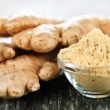Aloe vera is a plant species from the Aloe genus. It grows abundantly in tropical climates across the globe and it is grown for both agricultural and medical uses. Known as an ingredient for beverages, ointments, and skin lotions, the following are the health benefits of aloe vera.
Aloe Vera as Antioxidants
Aloe vera serves as an antioxidant. According to Global Healing Center, the plant contains vitamins A, C, and E, which act as antioxidants and help the body get rid of toxic substances and chemicals like free radicals, which causes problems in the body. Vitamin A is also great for vision and the integrity of the skin and the mucus membranes. On the other hand, vitamin C raises the body’s defenses against infection and illness. The vitamin also promotes the function of collagen, which acts as cement and binds loosely connected cells and tissues. Just like vitamin A, vitamin E is also known for its ability to promote the health of the integument, which includes the skin and the hair.
Aloe Vera and the Skin
Aloe vera is famous for promoting skin health. According to expert Bill C. Coat, as cited by Food NDTV, since the skin needed nutrition of its own, aloe vera, when formulated into a properly designed personal care regimen, could treat, exfoliate, restore, reveal, and provide constancy and impressive nutrition to the human skin. Also, Delhi-based dermatologist Dr. Deepali Bhardwaj said that aloe vera was rich in vitamins C, E, and beta carotene, which gave it its nourishing and anti-aging properties, allowing it to moisturize the skin without making it oily. Thus, it is highly favorable for people with oily skin.
Aloe Vera and Heartburn
Aloe vera also helps relieve heartburn. According to Health Line, a clinical review in 2010 found that consumption of one to three ounces of aloe gel at mealtime could decrease the severity of gastroesophageal reflux disease or GERD, a chronic digestive disease that occurs when gastric acid or stomach contents flow back into the esophagus, the passage of food. Aloe vera is also non-toxic, which makes it a safe and mild remedy for the aforementioned gastrointestinal condition, along with other digestive problems.
Sample Recipe
Aloe vera can be added to various meal recipes, such as Aloe Vera Sabzi or Gwarpatha Ki Subzi. According to Maayeka, the ingredients include 350 grams of aloe vera leaves, three tablespoons of raisins, a teaspoon of salt, half teaspoon of turmeric powder, one teaspoon of red chili powder, three-fourth teaspoon of mango powder, three tablespoon of cooking oil, half teaspoon of cumin seeds, one-fourth teaspoon of asafetida, half tablespoon of sugar, and 1.5 tablespoon of yogurt.
To prepare, as per the publication, the sides of the aloe vera are washed and peeled to remove the thorns. Next, the plant is chopped into thin slices, which are pressure cooked for two whistles with a glass of water. Then, the plant slices are washed with cold water. According to the publication, the water that is used to boil the aloe vera can be used. After that, oil is heated in a pan and asafetida and cumin are added. Then, the turmeric and boiled aloe vera are added when the seeds begin crackling; the ingredients are sautéed for one minute. Once done, the curd, raisins, and the spices are added and the food is stirred for about two minutes. Finally, the cooked food is taken out in a bowl and is served either hot or cold.
Aloe vera also presents nutritional value as a food. Thus, its addition to various meal recipes helps enhance a person’s level of health and well-being.












